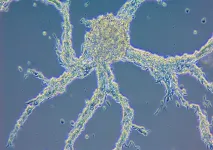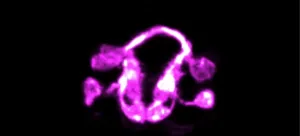(Press-News.org) A new analysis of education debates on both social media and in traditional media outlets suggests that the education sector is being increasingly influenced by populism and the wider social media 'culture wars'.
The study also suggests that the type of populism in question is not quite the same as that used to explain large-scale political events, such as the UK's 'Brexit' from the European Union, or Donald Trump's recent presidency in the United States.
Instead, the researchers - from the University of Cambridge, UK, and Queensland University of Technology, Australia - identify a phenomenon called 'micropopulism': a localised populism which spotlights an aspect of public services, such as the education sector. Micropopulism is populist, they argue, in the sense that it expresses a fervent division between a disregarded 'people' and an unjust elite.
The paper, by Dr Steve Watson and Dr Naomi Barnes, sketches out how think tanks, among other organisations, propagate such controversies using both new media and old. They highlight how 'wedge' issues are being used to prompt bitter disputes on social media between those with traditional views of education, and those who are more progressive.
'Traditional' teachers, in this context, argue that their authority in the classroom has been undermined by a largely university-based and ideologically-progressive 'elite' which, they claim, has used its institutional power to force them to use student-centred teaching methods which are not supported by scientific evidence. The polarised debate that ensues disguises the complexity of real classrooms, which in practice can be neither purely traditional, nor purely progressive.
The authors argue that 'the claim that educational micropopulism is abroad in England and Australia is almost self-evident' and offer a theoretical analysis of how and why it is happening. As potential examples, they cite increasingly vitriolic and adversarial online standoffs over issues such as teaching methods, discipline, or free speech on university campuses. Many of these appear to be linked to, or directly involve, think thanks or other groups with an interest in shaping policy. The paper calls for more evidence-gathering to understand the conditions which precipitate increasingly bitter debates within the education community, and warns that some vested interests may be using micropopulist tactics to influence policy.
Dr Steve Watson, a lecturer at the Faculty of Education, University of Cambridge, said: "We've reached the stage where there is enough evidence to indicate this issue requires more analysis and attention than it has received to date. There is clearly a relationship between education, policy-making, think tanks, media, and micropopulism - but its extent and consequences have yet to be fully determined."
Dr Naomi Barnes, from the Faculty of Education, Queensland University of Technology, said: "One concern is that at present, teachers and educators who are actively involved in these online discussions may not be aware of how controversy is being perpetuated and how bitter discussions go viral to help achieve policy-making objectives. There is a need to understand this more."
The authors argue that controversies in the media and on social channels enable would-be reformers to position progressives in education (often abbreviated to 'progs') as an out-of-touch elite. Most obviously, this idea seems to match Michael Gove's infamous demonisation of progressive 'bureaucrats, academics and teachers' unions' as 'The Blob'. One reformist government advisor has similarly praised social media 'trads' for instigating 'a reformation of the church of education'.
They also suggest that this reductive version of the debate now defines many of the most toxic arguments about education online. Watson, in particular, identifies Twitter - especially the popular #EduTwitter - as the site of unpleasant confrontations about matters such as the #BanTheBooth debate on discipline in schools, or the use of phonics in primary education.
In higher education, the researchers document a similar pattern in which university leaders are demonised as lazy, careless, distant and heavy-handed. In Australia, this seems to parallel a recent upswing in efforts by the right-wing Institute of Public Affairs (IPA) and Centre for Independent Studies (CIS) to actively publicise their policy arguments as research 'findings'.
The paper highlights 10 recent examples of this activity, which prompted national media headlines such as: 'Our universities have caved in to lazy groupthink'; and 'Don't bail out bloated unis'. Similarly provocative articles are increasingly appearing in the UK media, concerning issues such as free speech on campus, or claims about infiltration by foreign governments.
Watson's own experiences suggest that some of the online confrontations, if not deliberately instigated, certainly involve strange forms of behaviour. Last year, he published a paper highlighting possible evidence of micropopulist strategies on #EduTwitter. Within hours, this had provoked multiple angry responses on Twitter accusing him of fabricating a conspiracy theory - although many teachers and academics also posted messages of agreement.
As a result, the paper scored unusually well on Altmetric.com: a tool that tracks engagement with scholarly content online. Once this became apparent, the Twitter attacks not only ceased, but disappeared, with several critics deleting their posts as if attempting to stifle its popularity. "Extraordinarily, the paper may have gone some way to proving its own theory through the backlash it created," Watson said.
The authors believe that, at the very least, further research is needed to understand how today's education debates have become so schismatic. They warn that reasoned discussion about the future of education is being compromised. "We would recommend considering a digital citizenship initiative for education professionals to counter this," Barnes added.
INFORMATION:
The paper, Online educational populism and New Right 2.0 in Australia and England, is published in the academic journal, Globalisation, Societies and Education. DOI: 10.1080/14767724.2021.1882292.
CHICAGO, February 24, 2021 -- Despite having been designated as high risk for COVID-19 by the Occupational Safety and Health Administration, a new study finds 3.1 percent of dental hygienists have had COVID-19 based on data collected in October 2020. This is in alignment with the cumulative infection prevalence rate among dentists and far below that of other health professionals in the U.S, although slightly higher than that of the general population.
The research, published by The Journal of Dental Hygiene, is the first large-scale collection and publication of U.S. dental hygienists' infection rates and infection control practices related to COVID-19. In partnership, the American Dental Hygienists' Association (ADHA) and the American Dental Association (ADA) ...
The transition from single-celled organisms to multicellular ones was a major step in the evolution of complex life forms. Multicellular organisms arose hundreds of millions of years ago, but the forces underlying this event remain mysterious. To investigate the origins of multicellularity, Erika Pearce's group at the MPI of Immunobiology and Epigenetics in Freiburg turned to the slime mold Dictyostelium discoideum, which can exist in both a unicellular and a multicellular state, lying on the cusp of this key evolutionary step. These dramatically different states depend on just one thing - food.
A core question of Pearce's lab is to answer how changes in metabolism drive cell function and differentiation. Usually, they study immune cells ...
People who have had evidence of a prior infection with SARS-CoV-2, the virus that causes COVID-19, appear to be well protected against being reinfected with the virus, at least for a few months, according to a newly published study from the National Cancer Institute (NCI). This finding may explain why reinfection appears to be relatively rare, and it could have important public health implications, including decisions about returning to physical workplaces, school attendance, the prioritization of vaccine distribution, and other activities.
For the study, researchers at NCI, part of the National Institutes of Health, collaborated with ...
The formation of a brain is one of nature's most staggeringly complex accomplishments. The intricate intermingling of neurons and a labyrinth of connections also make it a particularly difficult feat for scientists to study.
Now, Yale researchers and collaborators have devised a strategy that allows them to see this previously impenetrable process unfold in a living animal -- the worm Caenorhabditis elegans, they report February 24 in the journal Nature.
"Before, we were able to study single cells, or small groups of cells, in the context of the living C. elegans, and for relatively short periods of time," said Mark Moyle, an associate research scientist in neuroscience at Yale School of Medicine and first author of the study. "It has been a breathtaking experience to ...
WOODS HOLE, Mass. -- Understanding how the brain works is a paramount goal of medical science. But with its billions of tightly packed, intermingled neurons, the human brain is dauntingly difficult to visualize and map, which can provide the route to therapies for long-intractable disorders.
In a major advance published next week in Nature, scientists for the first time report the structure of a fundamental type of tissue organization in brains, called neuropil, as well as the developmental pathways that lead to neuropil assembly in the roundworm C. elegans. This multidisciplinary study ...
What The Study Did: Medicare claims and clinical data were used to estimate health care costs associated with delirium in older adults one year after major elective surgery.
Authors: Tammy T. Hshieh, M.D., M.P.H., of Brigham and Women's Hospital in Boston, is the corresponding author.
To access the embargoed study: Visit our For The Media website at this link https://media.jamanetwork.com/
(doi:10.1001/jamasurg.2020.7260)
Editor's Note: The article includes conflicts of interest and funding/support disclosures. Please see the article for additional information, including other authors, author contributions and affiliations, conflict of interest and financial disclosures, and funding and support.
INFORMATION:
Media advisory: The full study ...
What The Study Did: Researchers use a large set of clinical laboratory data linked to other clinical information such as claims to investigate the relationship between SARS-CoV-2 antibody status and subsequent nucleic acid amplification test (NAAT) results in an effort to understand how serostatus may predict risk of reinfection.
Authors: Lynne T. Penberthy, M.D., M.P.H., of the National Cancer Institute at the National Institutes of Health in Rockville, Maryland, is the corresponding author.
To access the embargoed study: Visit our For The Media website at this link https://media.jamanetwork.com/
(doi:10.1001/jamainternmed.2021.0366)
Editor's ...
In the last 60,000 years, humans have emerged as an ecologically dominant species and have successfully colonized every terrestrial habitat. Our evolutionary success has been facilitated by a heavy reliance on an ever-advancing technology. Understanding how human technology evolves is crucial to understanding why humans have enjoyed such unprecedented evolutionary success.
ASU doctoral graduate Jacob Harris, working with ASU researcher Robert Boyd and Brian Wood from the University of California Las Angeles and the Max Planck Institute for Evolutionary Anthropology, are interested in the role of causal ...
What The Study Did: This study combined the results of 12 studies with 1.8 million participants to examine the association between attention-deficit/hyperactivity disorder (ADHD) in childhood and adolescence and the subsequent risk of developing a psychotic disorder.
Authors: Mikaïl Nourredine, M.D., M.Sc., of the Hospices Civils de Lyon in Lyon, France, is the corresponding author.
To access the embargoed study: Visit our For The Media website at this link https://media.jamanetwork.com/
(10.1001/jamapsychiatry.2020.4799)
Editor's Note: The article includes conflict of interest disclosures. Please see the article for additional information, including other authors, author contributions and ...
BOSTON (February 24, 2021) - Results of a study published today in JAMA Surgery reveal the impact post-operative delirium has on health care costs in the U.S. Data from the study shows that if delirium were prevented or made less severe for patients, it could reduce health care costs by $33 billion per year, that is, $44,300 per patient per year. Severe delirium resulted in an additional $56,500 per patient per year, as compared to routine health care costs for older post-operative patients.
Tammy Hshieh, M.D., M.P.H., Adjunct Scientist, and Ray Yun Gou, M.A., Data Scientist II, both with the Aging Brain Center in the Hinda and Arthur Marcus Institute for Aging Research at Hebrew SeniorLife, are co-first authors. Sharon K. Inouye, M.D., M.P.H., Director ...



